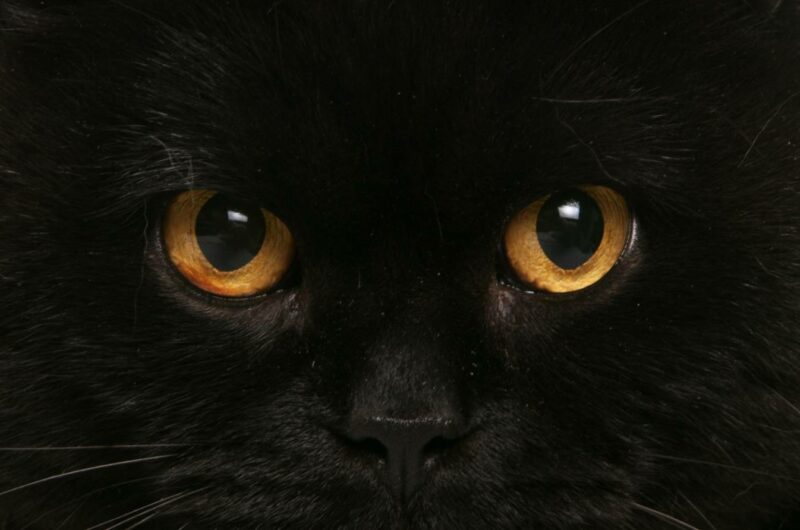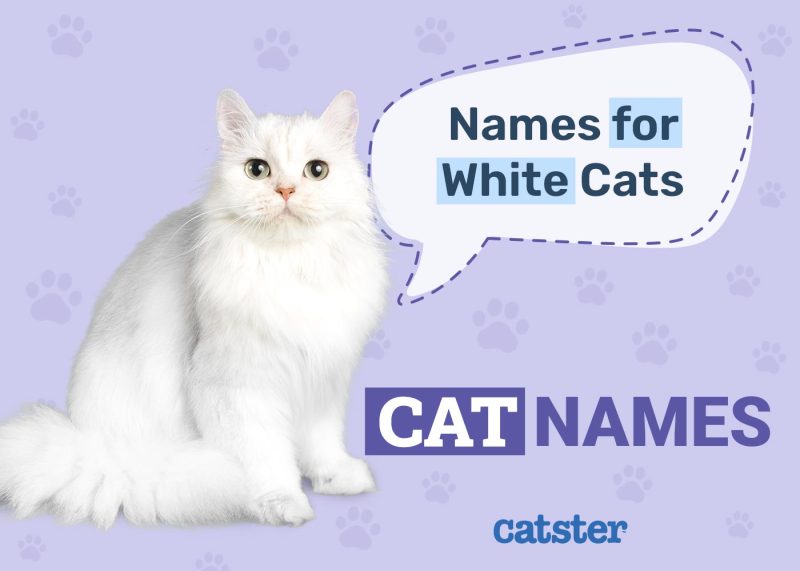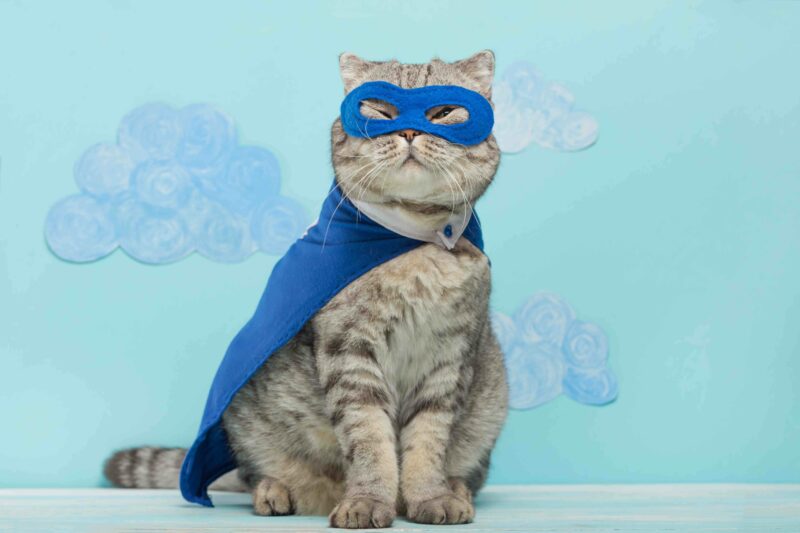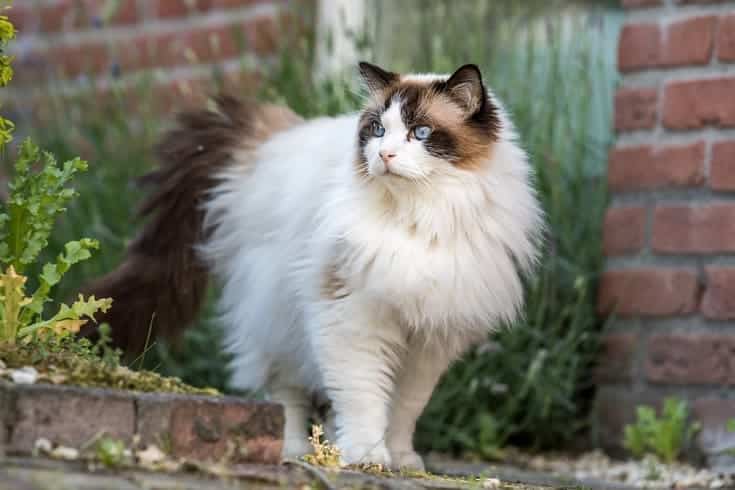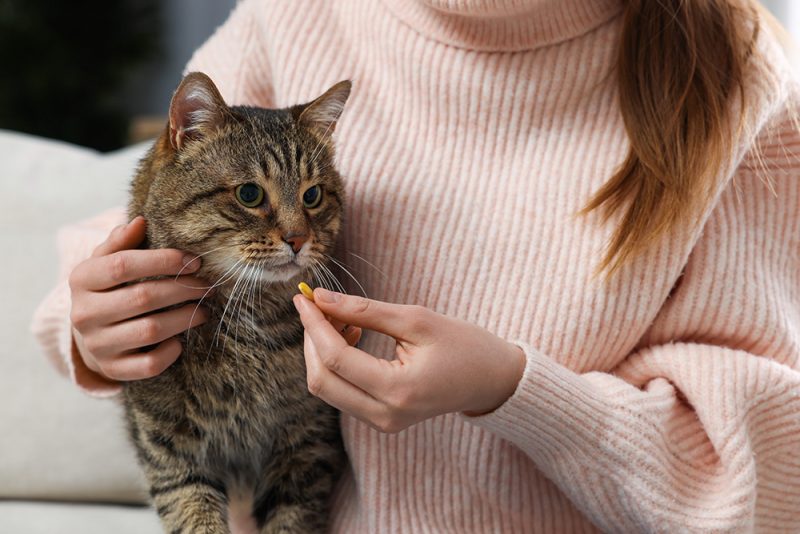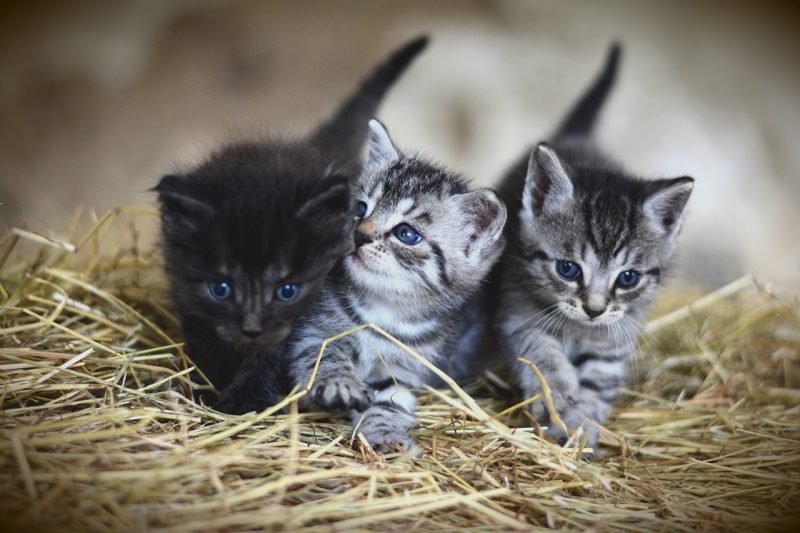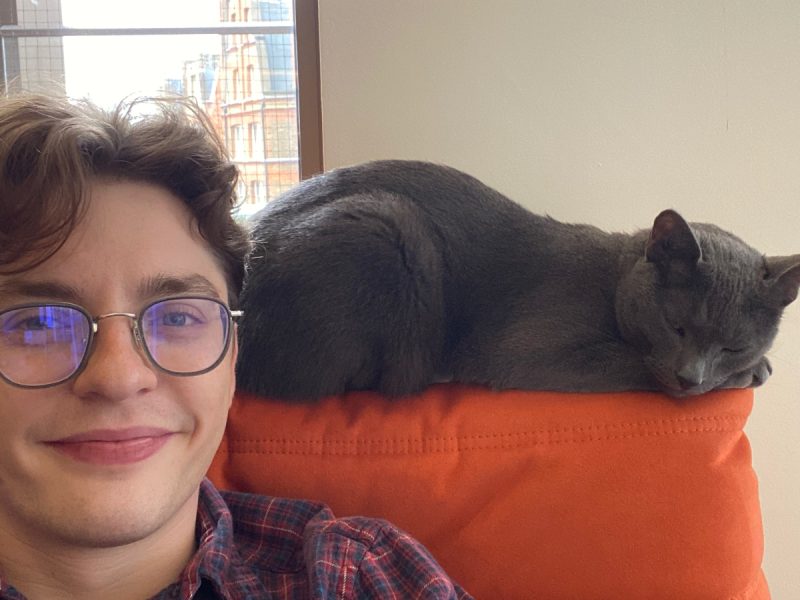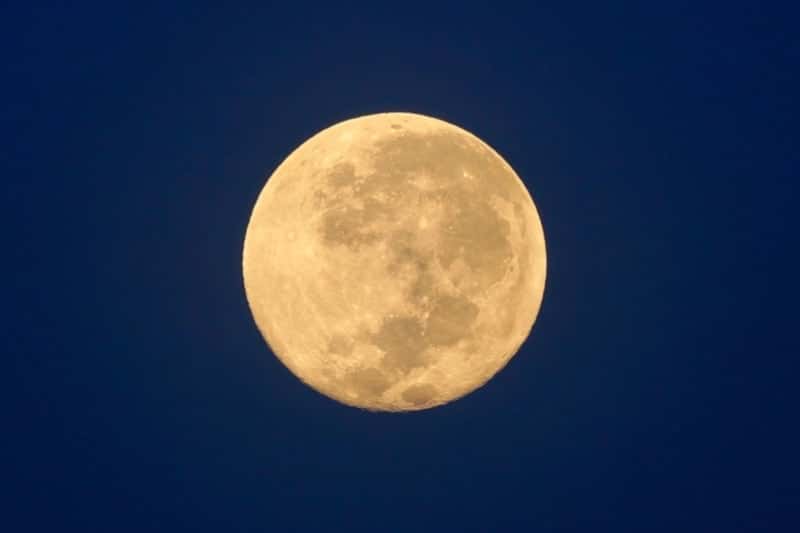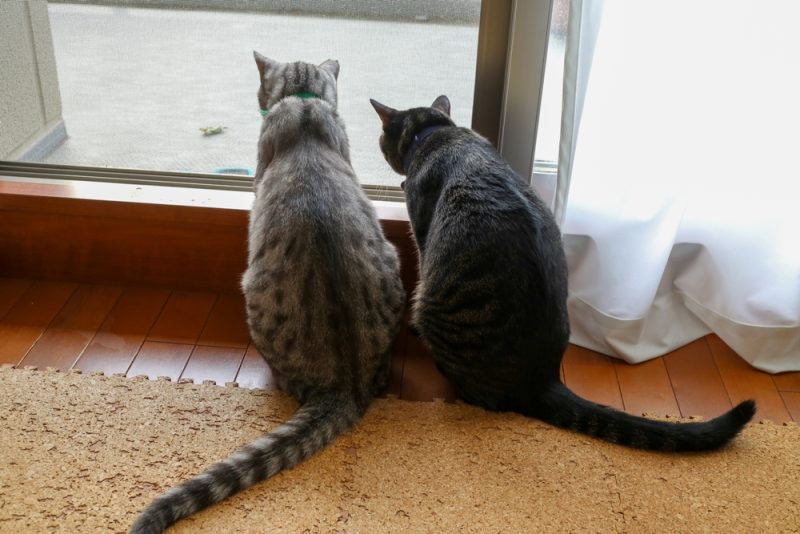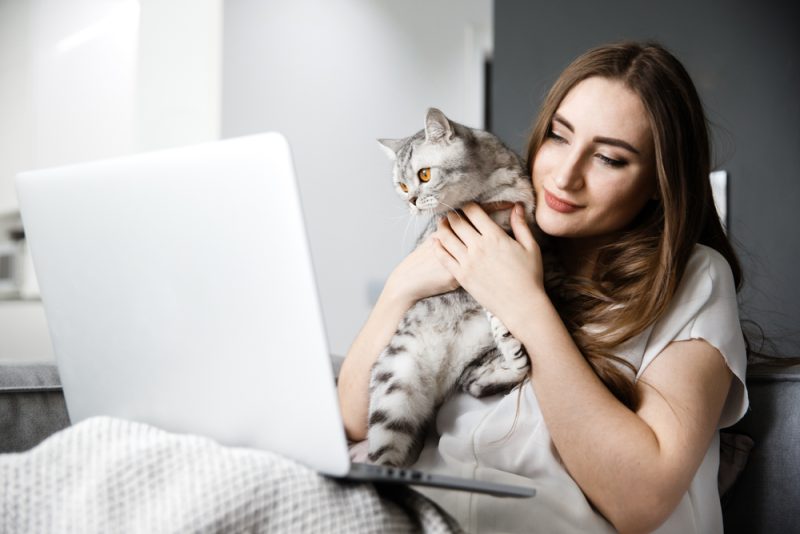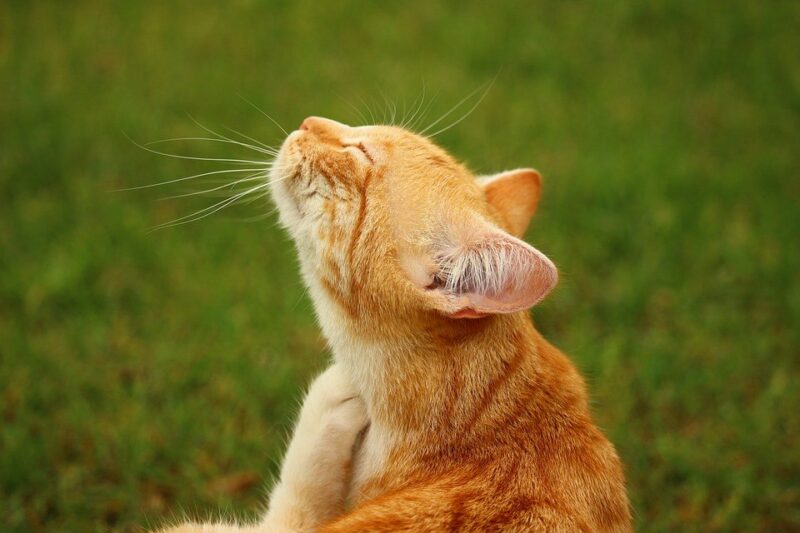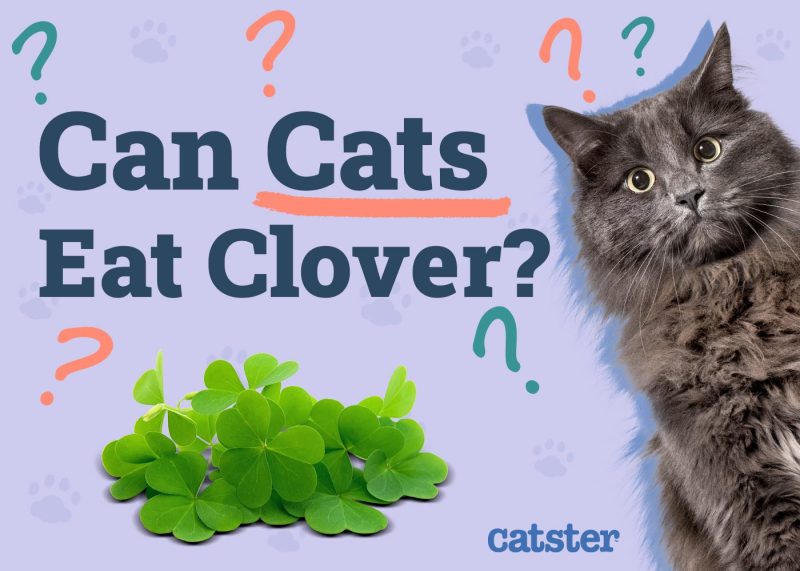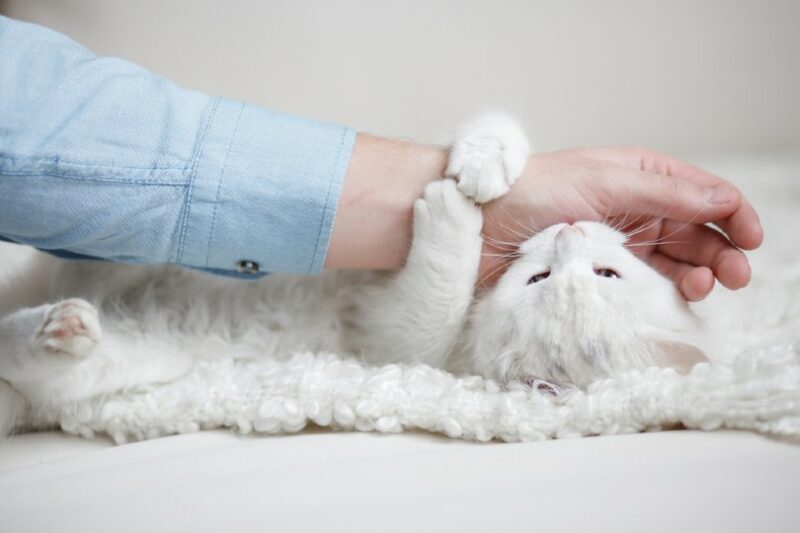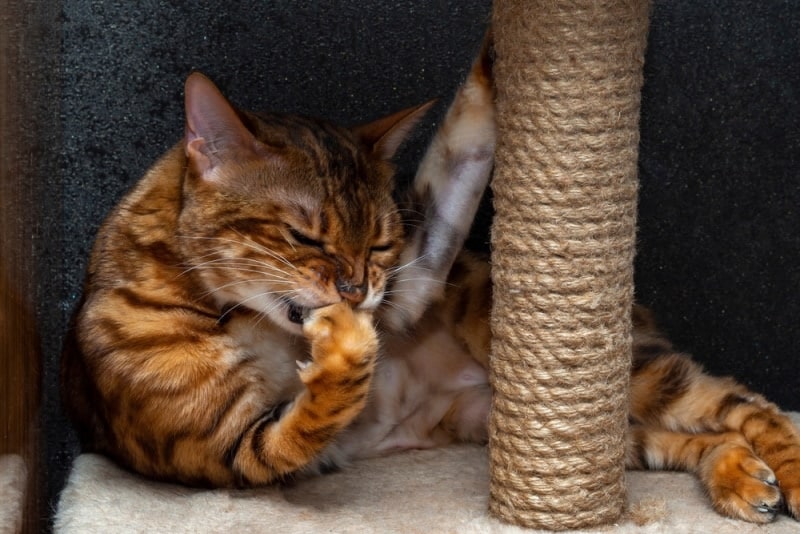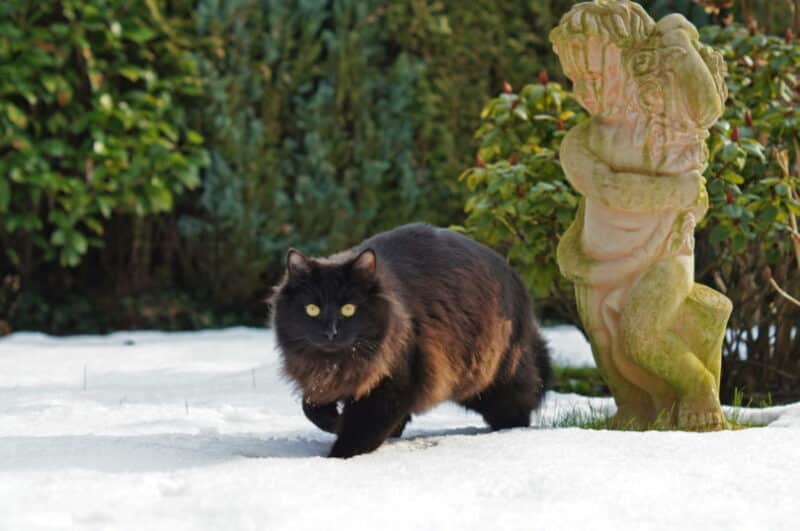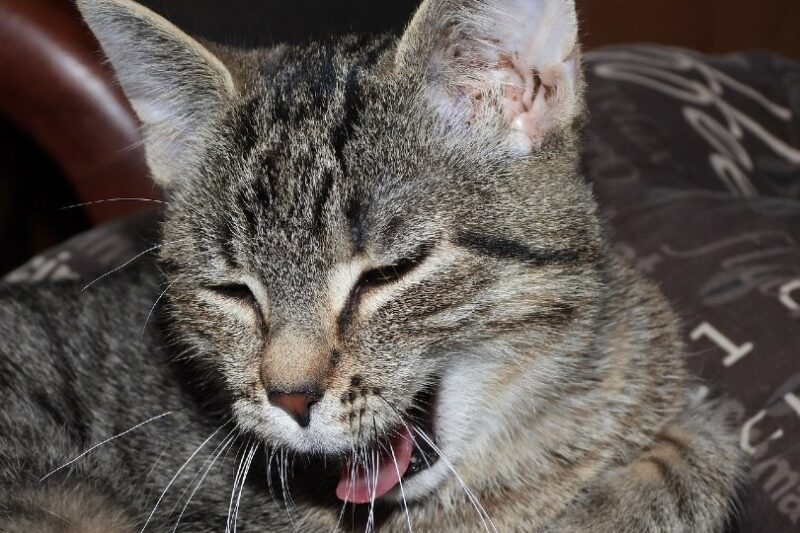The British Shorthair cat is a medium to large cat with a plush coat, round head, and a distinctive smile on its face. This cat is known for being fiercely loyal and affectionate, and they make great family pets and do well with a single owner. They come in a variety of colors, but is black one of them? The good news is that these cute cats come in black. So, whether you’re here because you’re thinking of getting one or you’re just curious, keep reading to find out more.

The Earliest Records of Black British Shorthair in History
The British Shorthairs can be traced back to the Egyptians before being taken to the British Isles by the Romans. When the Romans were run out of the Isles, their cats were left behind to mate with European wildcats, and their appearance became more similar to the British Shorthair’s current appearance.
These cats were hardy and grew used to living in cold, damp climates. They protected houses, barns, gardens, granaries, and the streets from rodents for hundreds of years until around the 1800s when people realized how valuable the cats really were and moved them into their homes.
It’s believed then that the British Shorthairs were brought to the United States in the early 1900s, but they were known then as Domestic Shorthairs. This breed is also known as British Blues since blue is the most popular choice. To create a pure black variety, the parents of a black kitten need the color gene B, but they also need the non-agouti gene, or else the coat will not be pure black. Instead, they will have a pattern.
How Black British Shorthair Gained Popularity
Black cats typically get a bad reputation for being unlucky or even evil omens, thanks to their connection to witches. But in many cultures, like in Celtic folklore, black cats have positive connotations, which have helped their popularity grow. Thanks to the British Shorthair’s long history with humans, they can take some of the credit for changing people’s opinions on black cats, especially in Celtic countries where people recognized how wonderful they really were.
Formal Recognition of Black British Shorthair
The British Shorthair was formerly recognized in 1980 by the Cat Fanciers’ Association. For a black cat to be registered, it must be jet black to the roots with no rusty tinges or white hair anywhere. Their nose is black, while their pads are black or brown, and their eyes can be gold or copper with no green traces.

Top 3 Unique Facts About Black British Shorthair
1. They Might Live Longer
According to research at the National Institute of Health, the gene that causes cats to be black also protects them from certain diseases.
2. Your Black British Shorthair Might Rust in the Sun
Just like if humans are in the sun and their hair changes color, a cat’s black fur can “rust” if they lay in the sun. Your cat will, of course, go back to being all black when their fur sheds.
3. British Shorthairs Are Sometimes Known as the First Cat Fancy!
Harrison William Weir was known as “The Father of the Cat Fancy” and is thought to be behind the development of the British Shorthair by selecting the best examples in a breeding program to create the breed we know and love today. Now, these cats are beloved across the United States and come in around 30 colors.
 Do Black British Shorthairs Make Good Pets?
Do Black British Shorthairs Make Good Pets?
British Shorthairs are a popular breed thanks to their loving, kind personalities. They form strong bonds with their owners, whether they’re members of a big family or part of a small one. They are calm and quiet and get along well with other pets and children, and they’re not as high-maintenance as some other breeds.
These cats are prone to being chunky, so a healthy diet and exercise are crucial. Black cats have a bad reputation, but it isn’t one they deserve, and thankfully, opinions seem to be shifting around them. Owning a black British Shorthair is considered to bring you luck, which is just a bonus on top of everything else that makes this cat so wonderful.
 Conclusion
Conclusion
The British Shorthair cat comes in around 30 colors, including black. They’re loving, loyal cats that make a wonderful addition to any family—big or small. So, if you’re thinking of getting a black British Shorthair, we understand. They’ll definitely bring some fun, cuddles, and luck with them!
See Also:
- White British Shorthair Cat: Facts, Origin & History (with Pictures)
- Golden British Shorthair Cat: Facts, Origin & History (With Pictures)
Featured Image Credit: chrisbrignell, Shutterstock
